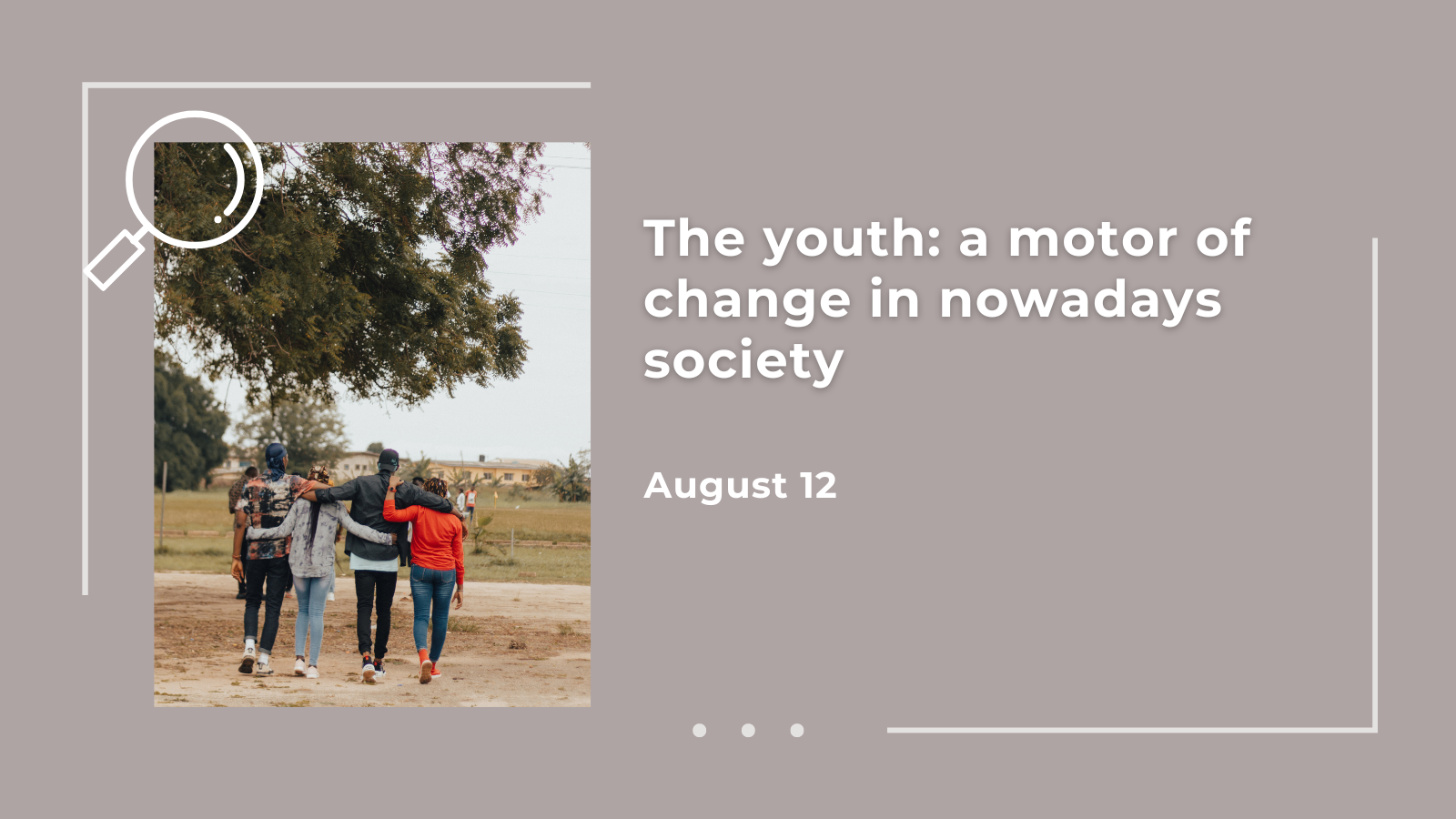
International Youth Day
Last August 12 was International Youth Day. Declared as such by the United Nations General Assembly in 1999, every year this day is used to draw the attention of the international community to the problems faced by young people and to help develop the potential of youth as partners today.
The United Nations Security Council itself, in its resolution 2250 of 2015, recognized the urgent need to engage youth in promoting and defending peace and countering extremism.
However, it should not be forgotten that age discrimination is to be considered as covered by the provision “any other form of discrimination“, “any other nature” or “any other social condition” typical of national and international human rights texts.
One of the keys to sustainable development is intergenerational solidarity. At the Economic and Social Council (ECOSOC) Annual Youth Forum 2023, young people were able to engage in three days of dialogues with States and other actors in society to express their concerns, opinions, ideas and actions to transform the world and make it a more just, green and sustainable place under the Sustainable Development Goals. The main theme of the Forum was accelerating recovery from the coronavirus pandemic and full implementation of the 2030 Agenda at all levels.
At this forum, young people also had the opportunity to contribute to the preparatory process for the SDG Summit, which will be held by the United Nations General Assembly in September 2023.
Ageism, which affects both young and old people around the world, is interrelated with other forms of discrimination such as racism or sexism, and limits people’s ability to reach their full potential and contribute to the community. The areas where most age-related barriers currently exist are employment, political participation, health and justice.
Of the nearly two billion people between the ages of 10 and 24, 600 million are adolescent girls and young women. Along with different forms of discrimination, girls and young women also face gender discrimination, marginalization, violence and unequal access to education, leadership opportunities and participation.
Therefore, in 2017, UN Women developed the Strategy for Youth and Gender Equality, based on three pillars: women’s leadership in all spheres; economic empowerment and skills development of young women; and measures to end violence against women and girls.
This, in turn, is pursued through three cross-cutting approaches: strengthening participation, voice and partnerships with young women and their organizations, partnerships with young men as partners for gender equality, and intergenerational partnerships throughout the life cycle to achieve a gender-transformative society.
In addition to discrimination and gender-based violence, there is a third major threat to young people: climate change. In Spain alone, 82% of young people have suffered what is known as “eco-anxiety” at some point in their lives. In fact, it is young people who have the greatest perception of climate change, as they are aware that their lives will be linked to the process of environmental degradation. gender-transformative society.
At the international level, young people have played a key role in the creation of the European Green Pact and are a key actor in the climate fight in the political and civil society arenas as well as in the UN ecosystem. The message from young people is clear: the older generations have failed, and it is young people who will pay for it in full of their own future.
Thus, in the case of youth and climate change, there is a sad paradox: young people around the world are not only the main victims of climate change, but they are also the main agents of change in climate action. A doubly unfair burden: they are paying for the consequences of climate change that is not their responsibility, and, in the face of the passivity of current generations, they are shouldering nothing less than the salvation of the planet.
FIBGAR’s main project in this regard is the DEC project: Fostering Youth Engagement for a Safer Environment and Responsible Use of ICT, which seeks to promote digital transformation, the fight against climate change and the participation of young people in democratic life, so that they become agents of change in their communities. Among other issues, the project intends to involve young people in research, debate and awareness of the challenges that climate change causes in the environment in which they live.
As a result, young people are expected to contribute significantly to the post-COVID-19 recovery efforts and become empowered advocates and agents of change.
Alejandro Gálvez Robles, FIBGAR collaborator



